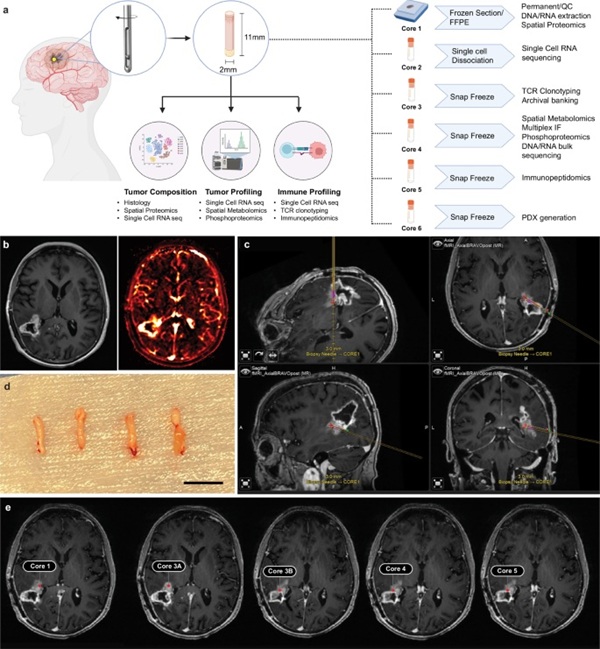Combining Multiple Laboratory Techniques Provides Deeper Insights into Deadly Brain Tumors
Posted on 15 May 2025
Glioblastoma (GBM) is a highly aggressive primary brain cancer that currently has limited effective treatments. Stereotactic needle biopsies are commonly employed for diagnosis; however, their use is restricted as physicians typically limit the collection of small tumor samples due to the invasive nature of the procedure, which requires sedation with anesthesia. Tumor samples are usually obtained at the start of treatment and, occasionally, at the end. In a groundbreaking study, a team of researchers has shown that doctors can gather extensive information about a patient’s cancer by applying various laboratory techniques to analyze tumor tissue obtained from needle biopsies of glioblastoma. This work, published in Nature Communications, could also have significant implications for diagnosing and studying other types of cancer.
In the study, clinicians from Johns Hopkins Kimmel Cancer Center (Baltimore, MD, USA) and four other institutions injected a virus designed to target and kill glioblastoma cells directly into the tumor. During the same procedure, surgeons collected tumor tissue samples, which were then analyzed using multiple advanced laboratory techniques, including single-cell RNA sequencing, transcriptomics, metabolomics, proteomics, and immune profiling. These techniques allowed the researchers to demonstrate that even small samples of tumor tissue could provide valuable insights into the tumor's biological characteristics, immune interactions, and molecular pathways. Additionally, the study found that the tissue could be grafted onto a mouse model for further examination and analysis.

“This is a concept that expands beyond just brain cancers,” said study co-author Chetan Bettegowda, M.D., Ph.D. “Whenever people do needle biopsies, it has been just sufficient to study if the tissue is cancerous, what type and maybe some very simple molecular characterization. This brings tissue analysis to the modern age. ... Historically [oncologists] haven’t done repeat biopsies because we felt, ‘Oh, what are we going to get that we don’t already know from the original diagnosis?’ It turns out there’s quite a bit to be learned.”
Related Links:
Johns Hopkins Kimmel Cancer Center













